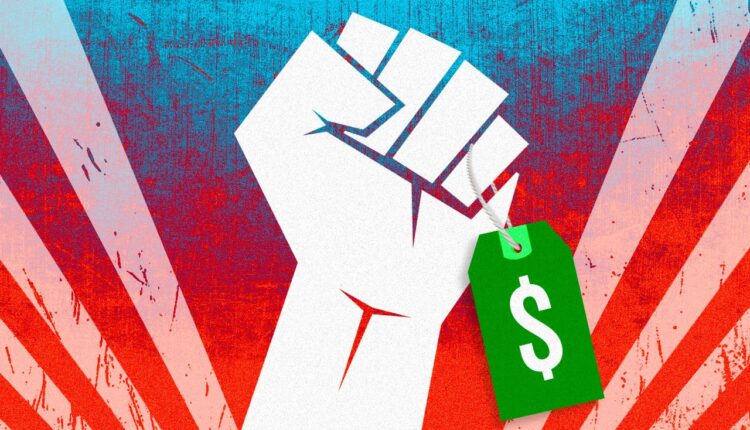
Managing decay
In politics, currently, it has become almost a rarity to speak of solidarity towards other people. The imposition of individualism as a philosophy of life is the result of the rise of capitalist ideology on a planetary scale. Its market expression is “consumerism,” understood as the irrational desire to consume, ultimately a tragedy, because it establishes a false measure of happiness that the system is unable to satisfy. This relationship between expectation and dissatisfaction can be a good example in measuring the health of contemporary capitalism.
One of its most obvious consequences is the overflow of international migration — many people emigrate in pursuit of the consumerist illusion that reaches the most remote places on earth through the informational and cultural media. It also raises the dilemma of the sustainability of the system in the face of the environment, since the ambition to consume seems destined to wipe out life on the planet. Lastly, it is one of the causes of ungovernability that can be seen in many countries and on a global scale.
The handling of the pandemic is proof of this. Neither capital, scientific or industrial reasons prevented the generalization of vaccines thereby curbing the spread of the virus; it was the logic of the system where market rules, social differences and asymmetry of power between countries that prevailed. Neoliberalism has cost millions of lives to humanity, said in the words that diplomacy demands, this is the verdict of the WHO, the UN, even Pope Francis.
It is striking that there have been very few popular reactions to this state of affairs. It is true that few politicians have survived an election in the midst of the pandemic, but the greatest expressions of opposition to government management have been more focused on the rejection of collective protection measures than on the prevailing inequalities, which reaffirms the weight of individualism in the ideology of people and its sometimes devastating effects.
The right has fed on this current, and neo-fascism is gaining ground all over the world, including in the United States, the epicenter of the world capitalist system. Donald Trump is, above all, an ideological phenomenon. But individualism is not the absolute patrimony of the right, on the contrary, liberalism is based on this philosophy and it is the reason why the Biden administration is unable to steer politics in another direction, which explains the Trumpist continuity demonstrated in many of his actions.
Biden cannot have an immigration policy essentially different from that of Donald Trump because the predominant political current in American society prevents him from doing so. It is based on the economic deterioration of the middle class, the social base of the system, and is a consequence of objective factors related to the relative loss of U.S. hegemony.
The war in Ukraine is another expression of the crisis of the globalized neoliberal system. It is not necessary to absolve the Russians of their guilt and of the humanitarian drama created in order to understand that it has been a war instigated by the United States, faced with the inability to compete advantageously within the very neoliberal order that they promoted, when full freedom of trade and the flow of capital was functional to their interests.
Putin is right when he says that the result of the war in Ukraine will be the advancement of a new international order, but it will not be due to Russian merit, even if he wins the war as most expect. Beyond ethical considerations, the invasion was a mistake, because it placed the conflict on the ground that is most convenient for the Americans. Thanks to the invasion, the United States has managed to find itself in the midst of fabulous economic deals, sell weapons by the boatload, dominate the international diplomatic scene, and impose the media narrative that governs world public opinion.
However, to achieve this, so many norms of the world order have been violated that nobody feels safe under the current rules of the game. What remains for the Americans is to try to manage the decadence of the system that has served as the basis for their hegemony in the post-Cold War period, and that is the most relevant signal on the world political scene.
The danger lies in the fact that nobody knows what is coming, because the weight of the hegemonic culture is very powerful in that country; its advantages have been extraordinary for the sectors of power, to a large extent the whole of society has also benefited from this condition and the American leadership is so primitive that it is difficult to suppose that the system will choose to surrender to multipolarity without offering a resistance that It can be very destructive for everyone. Biden doesn’t shout “America First” openly like Donald Trump does, but he sure thinks the same.


